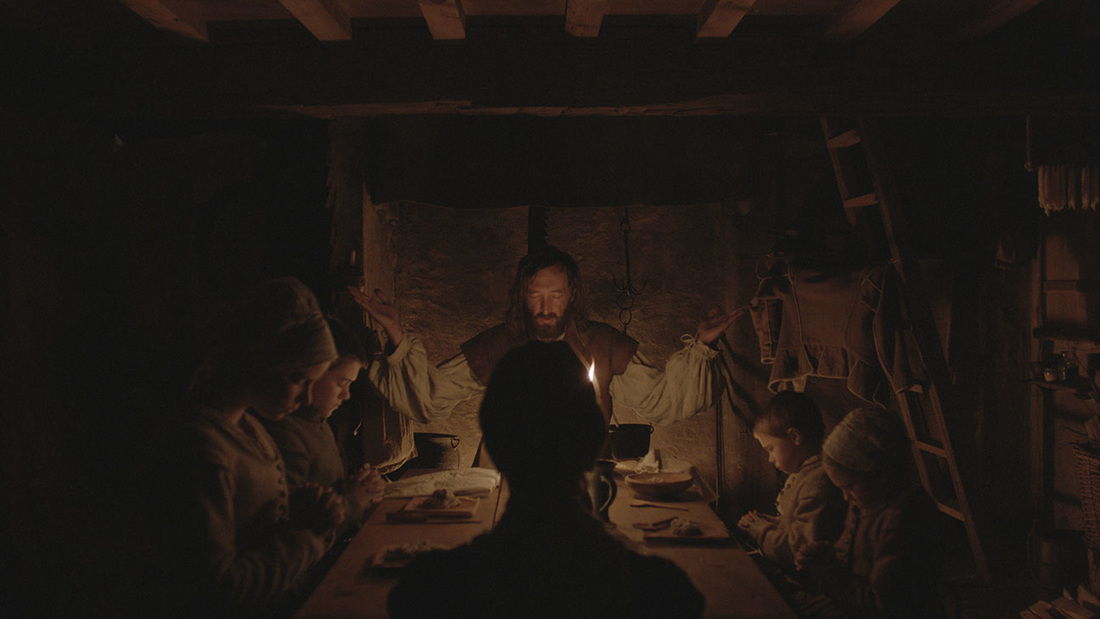That family, settling on a stretch of bare farmland after being banished from their New World town for unexplained reasons, typifies the fears of the 17th century settlers; as strangers in America, the only common link from their past lives in England becomes their faith. With five children and a poor harvest, however, the parents, played by Ralph Ineson and Kate Dickie, have to contend with the fact that belief isn’t going to help them survive, and before they can reaffirm their values, some “thing” springs out of the woods encircling them and snatches their newborn. With his decision to show us the grisly fate of the child along with the mass of contorted flesh gnawing upon it, Eggers propels his story past the stumbling blocks that many other monster films struggle over; in addition to being immediately terrified, we know that there is an actual evil here. No skirting around bushes or strange noises; the witch is real and bloodthirsty.
After this intense introduction, Eggers uses his impeccable attention to detail, acquired through his past work as a production designer, to bring out the character of the family through a controlled atmosphere of constantly imminent betrayal, a wavering unity that his fearless cast takes full advantage of. Ineson’s William is obsessed with protecting his family to the point of delusion, running outside to angrily smash logs every time he loses a dispute in a kind of grizzled pout session, while his wife, a fearsomely severe creature that Dickie makes nearly as distressing to be around as the witch, prefers to throw accusations towards her children at the flip of a hat for a grasp at some resolution in her increasingly hostile homestead. Interfering with the strict narrative of moral worship they’ve spun their lives around are their two oldest children; Harvey Scrimshaw plays Caleb, a boy at the start of puberty whose maturation and subsequent newfound desires clash against his ingrained principles, conveying his inward confusion through a scrunched brow alongside eyes pleading for understanding, while Thomasin, whose flirtation between well-meaning innocence and playful roguishness Anya Taylor-Joy captures with a range of pleasant to devilish manners, threatens to upset their carefully laid balance as she finishes her growth into womanhood.
Eggers’ fascination with the time period and how this familial chemistry was born from it comes through in every aspect of the production. The bleak color grading compresses each prayer for absolution along with the wilting tracts of the farm, and his decision to solely use flowery Puritan dialogue, while initially distancing, compounds the parent’s piety as tensions intensify; they’re unable to lash out with slews of curses in fear of enraging God, leading to the captivating circumstances of kinsfolk disputing with Old English as possessed children reel in the background. That balance between moments of intense visual horror and dramatic confrontations, along with Eggers’ ability to maintain the air of desperation through both, gives The Witch its horrifying presence; rather than turning away for a second to hide from a monster slipping past, you’d have to shut your eyes for the film’s entirety to escape the fear permeating each precise step Eggers and his cast take.
Grade: B+

 RSS Feed
RSS Feed
